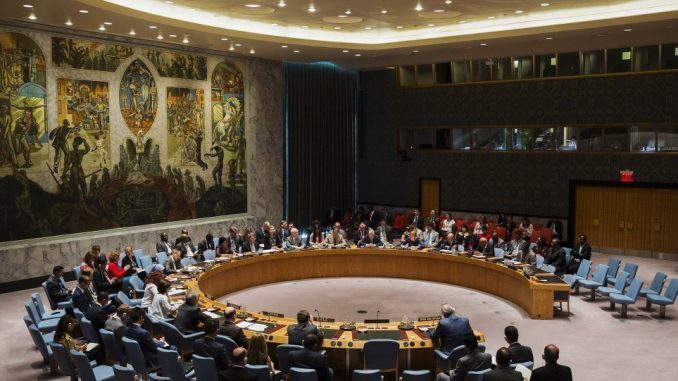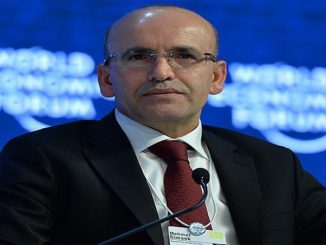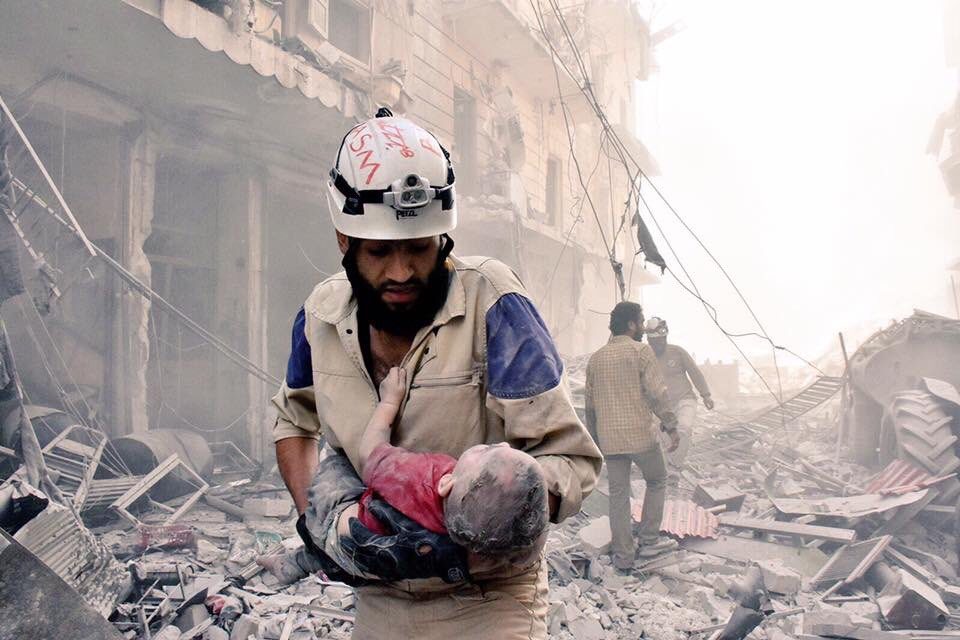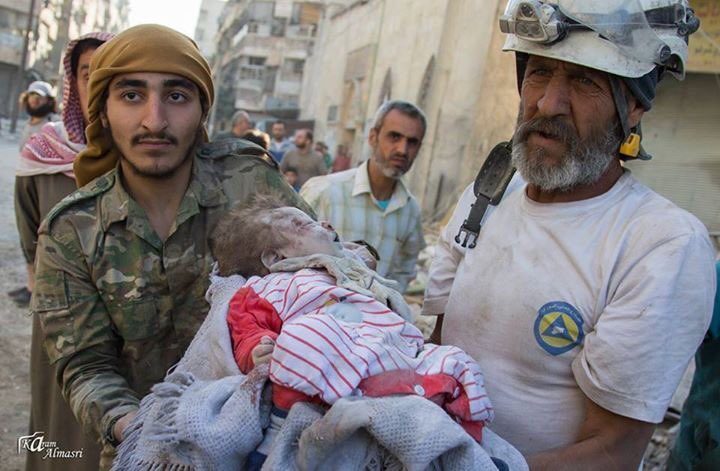
Russia said that the latest UN security council resolution, that aimed at applying new sanctions on Assad regime and was vetoed by Russia and China, was provocative and unjust.
The resolution referenced reports from a UN commission, created at the behest of Security Council diplomats, including Russia, that concluded the Syrian government had dropped devices with toxic chemicals from helicopters on three occasions in 2014 and 2015.
The resolution would have condemned the use of chemical weapons in Syria, a violation of international law, and placed UN sanctions on 21 Syrian scientists, military commanders and entities alleged to be involved in their use.
It also outlined an embargo on the sale of certain chemical substances as well as materials that could be used to transport the weapons, including helicopters.
However, the resolution was blocked as both Russia and China vetoed it on February 28.
The veto was the seventh time Russia has blocked a Security Council resolution aimed at the government of Syrian President Bashar al-Assad in the past five years, protecting its Syrian ally from any diplomatic action.
The resolution was drafted by Britain, France, and the United States and won nine votes in favor, while three countries – China, Russia and Bolivia – opposed it. Kazakhstan, Ethiopia, and Egypt abstained.
A provocative resolution
Before the veto, French UN Ambassador Francois Delattre said, “It’s a moment of truth.”
He demanded the council act, asking, “Who couldn’t condemn today those attacking innocent women and children … with chemical weapons?”
US Ambassador to the UN expressed his sadness over the veto.
“This resolution is very appropriate,” US Ambassador to the UN Nikki Haley told the Council after the measure was defeated in the vote.
“It is a sad day on the Security Council when members start making excuses for other member states killing their own people.”
“The world is definitely a more dangerous place,” she said, criticizing the vetoes as “abominable and indefensible choices”.
However, the Russian administration considered these calls provocative and that the whole resolution issue a plan to undermine the talks.
Russian President Vladimir Putin had warned that imposing sanctions on Syria during the ongoing Geneva conference was “completely inappropriate” and would undermine the effort to end Syria’s nearly six-year crisis.
Russian Deputy Ambassador Vladimir Safronkov echoed Putin’s view that imposing sanctions would have undermined peace talks, which were ongoing at that time, and described the draft resolution as a “provocation” by the Western “troika”.
In addition, Mikhail Ulyanov, Director of the Russian Foreign Ministry Department for Non-Proliferation and Arms Control, made the same remarks on March 7.
He pointed out that Moscow had “warned” other countries about possible negative consequences of such a step, though it was ignored. Ulyanov stressed that the authors of the draft resolution knew for sure that Russia would veto it, but still put the resolution on vote.
“In fact, the whole idea of voting in the Security Council was absolutely provocative. It is sufficient to say that the draft resolution on the introduction of sanctions against a number of Syrian individuals and legal entities was prepared in the beginning of December, though the western co-authors refrained from putting it on vote. They did it only at the end of February, exactly during the resumption of peaceful settlement talks in Geneva,” Ulyanov said.
“The goal is obvious — to try to present Russia as a country, ‘covering’ crimes allegedly committed by Damascus,” Ulyanov added.
He highlighted that “no evidence of Damascus using chemical weapons had been presented so far, while the names of the sanctioned individuals and entities had never been mentioned in any related reports.”
However, there are numerous evidence of Assad regime’s responsibility for chemical attacks in Syria but Russia keeps denying them to protect its allied regime.
Reports on Chemicals usage against civilians
The newest report was made by Human Rights Watch (HRW), which said that Assad regime forces used chemical weapons in rebel-held areas of Syria’s Aleppo during the final weeks of the battle to retake the key city
the US-based rights group said it had verified eight chemical attacks during the offensive from November 17 to December 13, adding that four children were among the victims.
HRW said it had interviewed witnesses, collected photos and reviewed video footage to reach the conclusion that chlorine bombs were dropped from government helicopters during the operation.
Around 200 people were wounded by the toxic gases used on opposition-controlled areas of the northern city, according to HRW.
One of the deadliest bombings hit the neighbourhood of Sakhur on November 20, killing six members of the same family, including four children whose lifeless bodies were shown on a video taken by the Shabha press agency.
HRW said its report did not find proof of Russian involvement in the chemical attacks, but noted Moscow’s key role in helping the government to retake eastern Aleppo.
The HRW report detailed attacks on a playground, clinics, residential streets and houses that left scores of people struggling to breathe, vomiting and unconscious.
The alleged attacks, which may have involved as many as three helicopters operating jointly, took place in areas where government forces were poised to advance, said the rights group.
“The pattern of the chlorine attacks shows that they were coordinated with the overall military strategy for retaking Aleppo, not the work of a few rogue elements,” said Ole Solvang, HRW’s deputy emergencies director.
HRW urged the UN Security Council to impose sanctions on senior leaders in the chain of Syrian command, but such a move would likely be vetoed by Russia as always.
In addition, the so-called friends if the Syrian people keep sending resolutions to the UN security council against regime crimes knowing that they will by blocked by Russia, while they don’t seek any real moves, that Russia can’t block, to stop the regime’s brutality.
President Barack Obama said the use of chemical weapons in Syria was a “red line” for him but then withered when Assad’s forces used sarin-filled shells to kill some 1,400 Syrians men, women, and children in 2013. America has armed and trained Syrian rebels, but only in small numbers. It never bombed Assad’s forces their behalf or established a no-fly zone where Syrian civilians might be safe from Syrian and Russian airstrikes.
The Syrian crisis began as a peaceful demonstration against the injustice in Syria. Assad regime used to fire power and violence against the civilians and led to armed resistance. 450.000 Syrians lost their lives in the past five years according to UN estimates, and more than 12 million have lost their homes.



